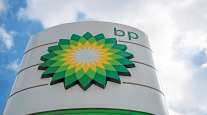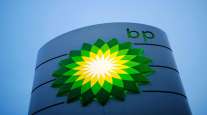Senior Reporter
Clean Energy Fuels, BP Create JV for RNG Fuel Production

[Stay on top of transportation news: Get TTNews in your inbox.]
Clean Energy Fuels Corp. announced it finalized a joint venture with BP Products North America Inc., a subsidiary of BP, to develop, own and operate new renewable natural gas projects at dairies and other agriculture facilities.
Each company will retain 50% voting control in the joint venture, which will be initially funded with $50 million previously provided by BP and another $30 million from Clean Energy.
The joint venture anticipates adding preferred stock and debt to increase committed investment capital, according to Clean Energy. It is based in Newport Beach, Calif., and will be the operating partner.
Clean Energy Fuels, @bp_plc finalise dairy RNG joint venture: https://t.co/JOGnERagwH @CE_NatGas #RNG #renewablegas #biogas #dairyfarm pic.twitter.com/u4zbyZZlYg — Bioenergy Insight (@BioenergyInfo) March 10, 2021
“The fact that we were able to work out the details of this JV so quickly after announcing our intent in December is a testament to the commitment of both companies to get more RNG into the marketplace,” said Andrew Littlefair, CEO of Clean Energy, in a release.
“Clean Energy continues to sign new RNG agreements with trucking companies, transit agencies and other transportation fleets all looking to reduce the carbon footprint of their operations. This JV will provide additional RNG going forward and enable us to expand that customer base,” he added.
The joint venture intends to produce RNG using methane captured from dairies’ waste. RNG is used as a transportation fuel and has lower GHG emissions on a life cycle basis when compared to conventional gasoline and diesel. The California Air Resources Board has given similar projects as the joint venture’s a carbon intensity score of a weighted average of -317 compared to carbon intensity scores of 100 for conventional diesel fuel and 16 for electric batteries.
A carbon intensity score is a means of calculating how much carbon the supply chain emits for a given fuel throughout its life from producing and transporting to burning.
“The expansion of our RNG portfolio aligns with BP’s ambition to become a net-zero company by 2050 or sooner and to help the world get to net zero,” said Sean Reavis, senior vice president of BP low carbon trading.
Want more news? Listen to today's daily briefing below or go here for more info:




